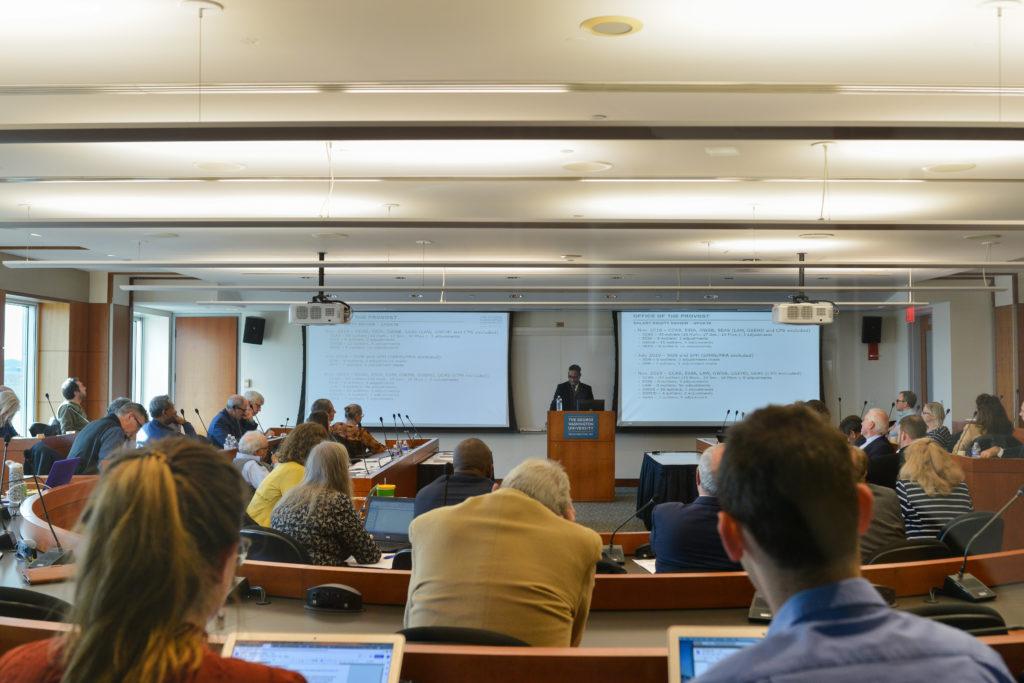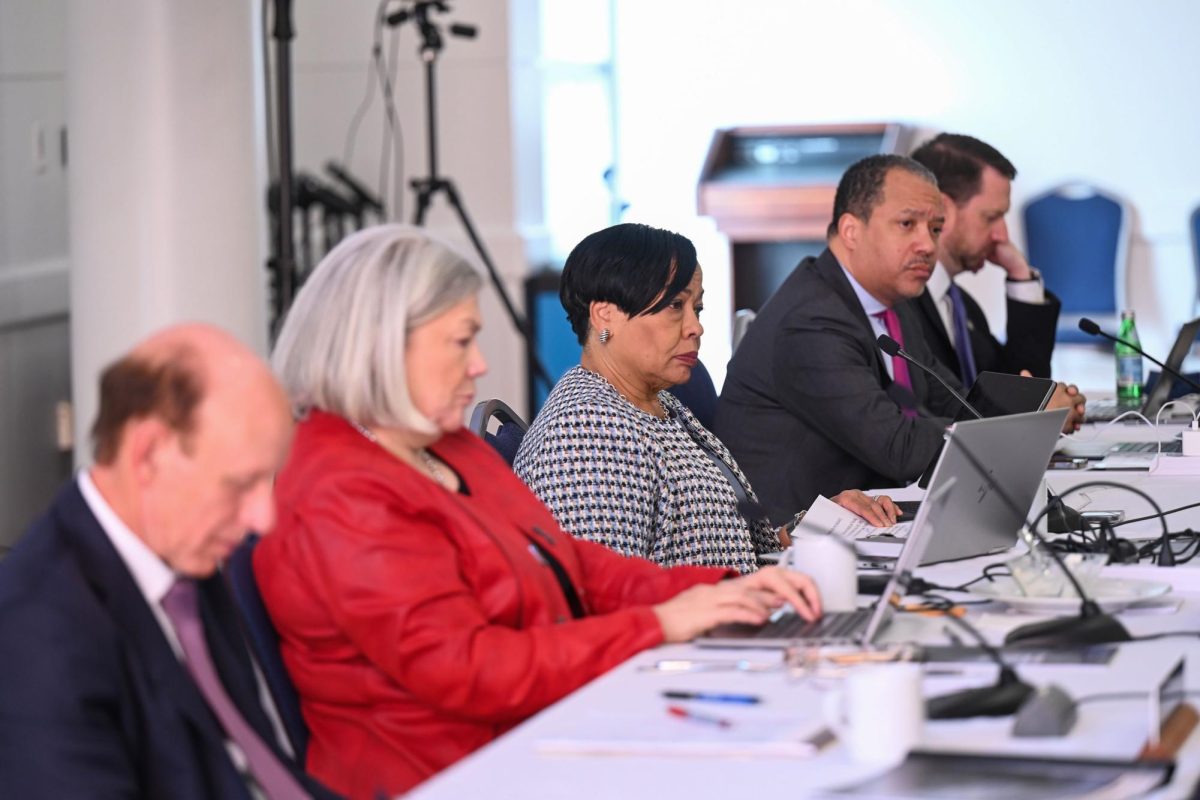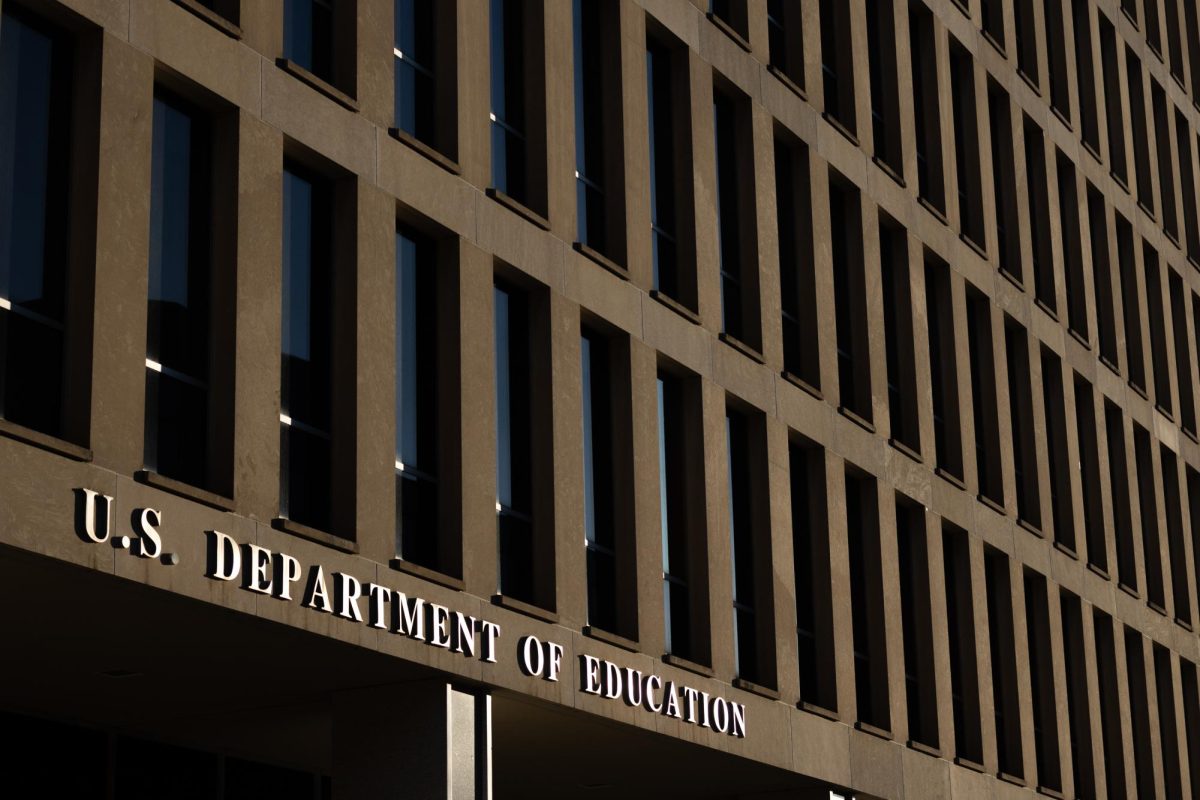Senators voted to submit a resolution “clarifying” faculty’s role in decision making to a Professional Ethics and Academic Freedom Committee meeting in June during May’s Faculty Senate meeting.
Guillermo Orti, a faculty senator and professor of biology, introduced a resolution defining the role of the Faculty Senate Executive Committee as a body to present information to other faculty groups, and senators discussed the resolution in a private session in order to have an open conversation on the issue. He said the Board of Trustees’ process in its decision to arm some GW Police Department officers next fall is not “consistent” with the University’s shared governance principles, which state that all faculty have a role in “key decision making,” because officials notified only the Executive Committee prior to the announcement to the GW community last month instead of the entirety of the senate.
“We need to have a solid agreement of what our functions are as senators and, in particular, as FSEC members, to participate actively in shared governance,” Orti said.
Orti said faculty senator orientation documents do not mention the Executive Committee’s ability to keep confidential information like the GWPD arming decision away from the rest of the senate. Phillip Wirtz, a faculty senator and professor of decision sciences and of psychological and brain sciences, said in a senate meeting last month that he learned of the Board decision to arm some GWPD officers at an FSEC meeting the same month and was “sworn to secrecy.”
Orti said the Executive Committee must increase transparency with other senators to “actively” participate in shared governance.
“Our recent history indicates that when transparency is lacking, the GW climate sours in the specific case of arming the GW police,” Orti said.
Sarah Wagner, a faculty senator and a professor of anthropology, said Executive Committee members should consider major decisions like arming GWPD officers as opportunities to involve other faculty input since members of the committee act as representatives for the senate to administration and should represent the interests of the whole senate.
She said because the Board was already discussing arming GWPD when they notified the Executive Committee in February, the committee did not exceed their authority by keeping information from the rest of the senate but instead “undercut” potential feedback from the senate because they did not seek their input.
“February to April seems like a long time on such an important issue,” Wagner said. “It does not feel like that’s a success story for FSEC.”
Wagner also presented a report on classroom recordings on behalf of three senate committees asking officials to clarify intellectual property and privacy rights as well as recording options for full-time faculty members who said they don’t fully understand the current outlined rights.
The report states that the University owns the files to classroom recordings and can legally view them but that faculty members retain all intellectual property rights, according to Emily Hammond, the vice provost for faculty affairs, who outlined these rules when she met with the committees in January. Officials could only view class recordings for “valid reasons” relating to cases where legal action is necessary, according to the report.
“It still feels a little bit problematic from the point of view of you know, there isn’t a clear articulation or policy about when one reviews and what consent, what informing takes place,” Wagner said.
The report also requests officials contact all faculty regarding the University’s policies prior to the start of next semester so faculty are aware of their choices for using and sharing recordings before they begin teaching again in the fall. Wagner said an email to all faculty would provide transparency for those concerned with the lack of official rules about administrators accessing recordings.
The committees’ recommendations came after a survey the senate conducted in the fall revealed faculty were worried about students’ access to class recordings lowering attendance rates and allowing officials to review their classes without permission, according to the report.
Donald Clarke, a faculty senator and professor of law, said officials need to reduce confusion about ownership of the content in the recordings because the University’s legal ownership of faculty’s files could limit professors’ ability to control the circulation and viewing of recordings, which concerns faculty who want freedom with how they use their recordings.
Senators adopted a resolution honoring interim University President Mark Wrighton for his leadership and collaboration with the senate during his 18-month tenure at the University. This was Wrighton’s final senate meeting as chairman of the assembly before incoming University President Ellen Granberg assumes all presidential responsibilities July 1 and will begin attending senate meetings.
Wrighton announced he will return to teach at Washington University in St. Louis, where he previously served as chancellor, after his time as president is over. He said he will teach a class on chemistry and energy in the fall semester and a course on financing higher education in the spring.
“I appreciate the resolution, and I hope that over time you will see that some of the things that we’ve been striving to do will all be positive for the University,” Wrighton said.
Grace Chinowsky, Rachel Moon and Eóighan Noonan contributed reporting.











